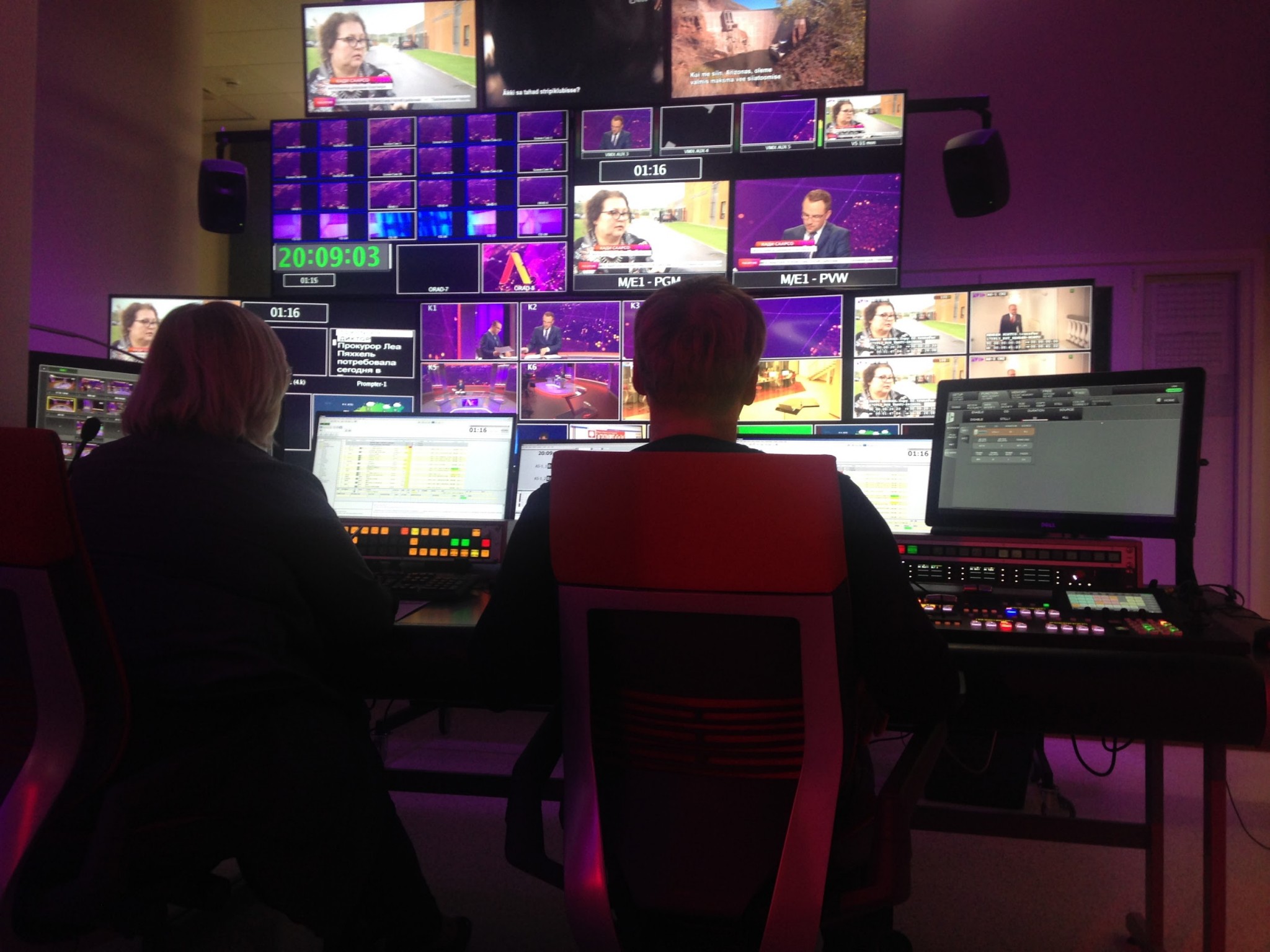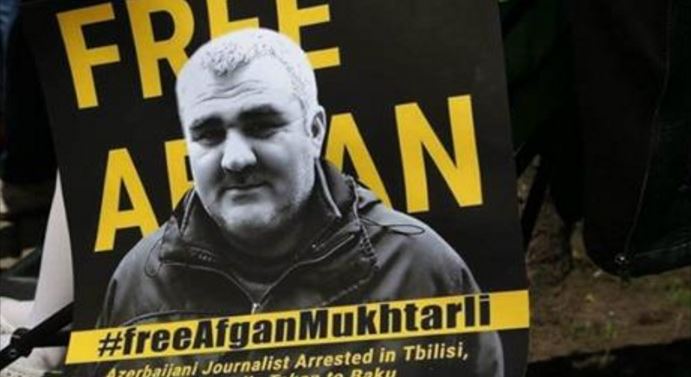The advent of social networks transformed the world of media, and Ukraine was no exception. Increasingly more Ukrainians, especially the younger generations, read news on Facebook, Telegram, or YouTube, while the percentage of TV viewers is steadily decreasing.
Although YouTube takes only second rank after Facebook, its video-only format gives it a much-desired potential to combine visual entertainment with complex socio-political topics. With its range of investigative reporting, interviews, and political essays in an easily-digestible video format, YouTube is the main challenger to television's ebbing dominance.
Once, this development might have been a cause for concern in Ukraine. The leading positions in the local YouTube market used to belong to channels affiliated with Russian media, business or political actors, or simply advocating pro-Kremlin editorial stances.
However, last year saw pro-Ukrainian channels overtake their pro-Russian counterparts for the first time. By reporting on the Donbas war, conducting investigations, or just educating their audience, these creators carry a potential for a voice independent of political or oligarchic interest.
The growing success of Ukraine’s YouTube journalism could become an inspiration for the whole post-Soviet region. Particularly in the countries where the freedom of the press is heavily repressed. Nevertheless, the open nature of the platform presents its own set of risks.
Media and YouTube in Ukraine
A USAID-Internews 2021 survey reveals interesting data on media consumption in Ukraine.
For example, social media has become the go-to source for 63% of Ukrainians, compared to 46% who take news from television.
While these groups partially overlap, a fifth of the respondents rely solely on social networks. This trend is expected to continue together with increasing internet use.
Closing down of ZIK, NewsOne, and 112 TV channels, connected to the Moscow-friendly oligarch Viktor Medvedchuk, also hastened this shift. Half of these channels’ viewers did not substitute the loss with a different TV station but rather moved on to online and social media completely.
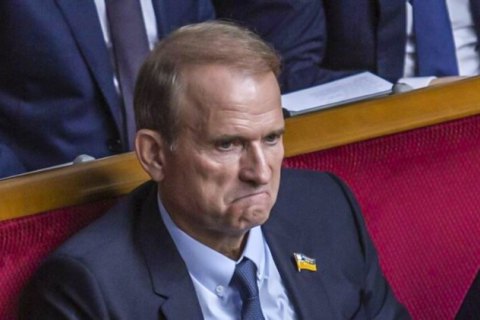
Despite a mild decline since last year, Facebook and YouTube remain the leading platforms for news, with 43% and 25% users, respectively. They are followed by Telegram, Instagram, and Viber.
Those respondents who were not satisfied with YouTube as a source of news pointed out its overly long format, and labeled it “too similar to TV.” This suggests an overlap between TV and YouTube viewers, and potentially even a direct user shift from television to YouTube.
Media literacy is moderately, but steadily rising in the country, which also leads to demand for high-quality content, and to greater awareness of media bias and ownership. This contributes to the decline of TV viewership, as most channels are seen as controlled by oligarchs.
Serhiy Prytula, Toronto TV, and Bihus.info are the leading Ukrainian channels on Patreon.
While Prytula is a TV host-turned-politician, formerly running for Kyiv mayor with the liberal party Holos (The Voice), Bihus.info is a journalistic channel, famous for its investigative work UNSCAMMED, uncovering the most common methods of fraud. As of November 2021, the channel had 490,000 subscribers and more than 160,000 monthly views.
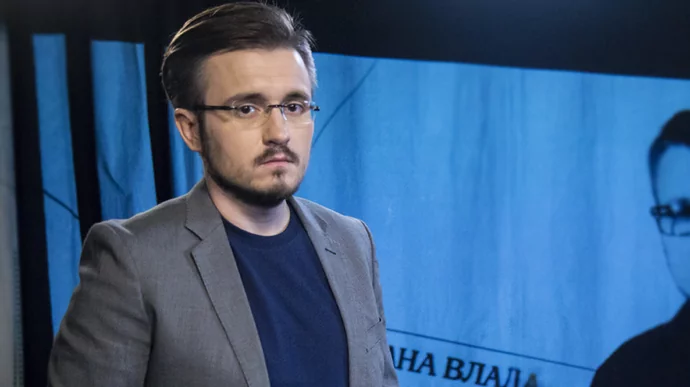
With over half a million subscribers, Toronto TV is among the leaders on Ukrainian YouTube. Their most common format is humorous reporting on both major and minor topics in Ukraine and abroad.
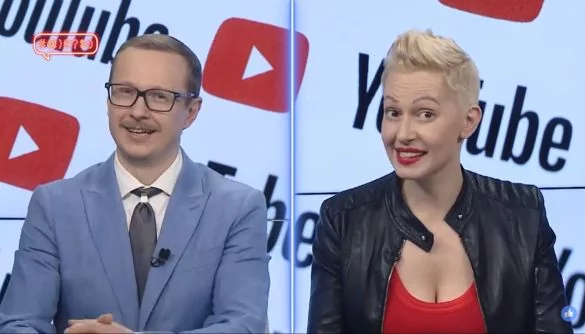
While the controversial and highly popular vlogger Dmytro Gordon -- who conducted an infamous interview with the war criminal Igor Girkin -- has 3 million subscribers, the average number of views on TV Toronto videos is 5 times higher than on Gordon’s.
The rising number of subscribers and patrons translates into rising independent revenue, as well as higher attractiveness for advertisers. Content in the Ukrainian language can also win support from the Government. Finally, some of these channels are supported by international organizations like Internews.
In turn, Russian or pro-Russian channels experienced a decline, with 30% lower consumption than Ukrainian creators in the last three months.
Anatoliy Shariy, a Ukrainian ‘pro-Russian’ vlogger and journalist, remains a major player on YouTube, currently boasting 2,6 million subscribers. However, 50% of his views come from Russia and only 25% from Ukraine.
While the reasons for this development may be manyfold, growing media literacy and awareness of pro-Russian narratives, as well as growing interest in the Ukrainian language likely play a major role.
Ukraine calls on international media to not legitimize Russia’s occupation of Donbas
A chance -- and risk -- for the region
The YouTube business model is a key to the creators’ independence. Through crowdfunding and advertising, YouTube channels can be financially successful without the robust personnel, material, or even legal needs of TV stations. YouTubers can survive without patronage from governments or from wealthy businesses.
In the context of Ukraine, this sets them apart from the major oligarch-controlled TV channels. From the perspective of the wider region, YouTube can be the tool of independent journalism in those countries, where free media is suppressed by authoritarian regimes.
Belarus experienced a similar shift of viewers from TV to YouTube. The now-imprisoned activist and dissident Siarhiej Cichanoŭski became highly popular on the platform, even among the older generation. The independent Belarusian-language news channel Belsat has currently around 450,000 subscribers.
When Lukashenka doubled down on media repression after the 2020 protests, much of independent news content moved either to Telegram or YouTube, bypassing the legal and material barriers of TV and print.
Similarly, Navalny’s investigative videos were among the most popular on Russian YouTube. Struggling to suppress the voices on the platform, the Kremlin instead attempted to pressure YouTube’s owner Google into regulating the undesired content and upholding Russia’s "digital sovereignty."

This shows YouTube journalism is not fireproof, nor without risks.
Russia is a trailblazer in its fight for control over its online space, with its 2019 ‘sovereign internet law’ and an agency -- Roskomnadzor -- dedicated to enforcing it. Roskomnadzor famously demonstrated its power during last year's protests by slowing down Twitter.
Central Asian regimes have also clashed with Big Tech to establish their sovereignty over the internet. In Turkmenistan, the US-owned news site Eurasianet was caught in the crossfire, as Ashgabat’s pressure even forced a temporary block of Eurasianet’s YouTube account.
Kyrgyz independent news outlet and watchdog Kloop experienced a similar, albeit again temporary, "blackout" during the 2021 Kyrgyzstan elections.
Yet, battling an international giant like Google presents a greater challenge than suppressing or controlling domestic media. Temporary internet shutdowns may be practiced in moments of crisis, but this solution is not feasible in long term.
Banning popular and widely used YouTube completely would risk a serious backlash from the population. Roskomnadzor’s Twitter stunt might have worked also due to the low popularity of Twitter in Russia, which is certainly not the case for YouTube.
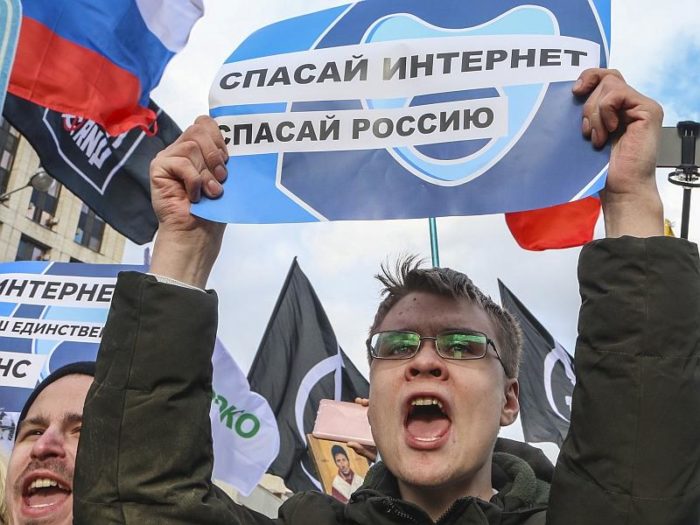
The relatively open nature of YouTube presents its own dangers, however.
Hijacking of the platform by the authorities is another risk. Rather than banning it, the regimes can use YouTube as a platform for the state-controlled media or try to entice established YouTubers to spread pro-regime narratives or disinformation.
Yet, YouTube has been known to step against overtly propaganda channels, as it did with Konstantin Malofeyev’s Tsargrad TV.
All things considered, YouTube is not a silver bullet. But, despite its shortcomings, it offers a chance for independent journalism and citizens to have their voices heard in an increasingly claustrophobic media space.
Related:
- Ukraine calls on international media to not legitimize Russia’s occupation of Donbas
- How Russia infiltrates the media landscape of the Black Sea region
- Major Russian media are under the centralized control of the Kremlin, investigation shows
- Where Putin’s media-wielding men in Ukraine get their money
- Russian propaganda’s main message to Ukraine: you’re under “external governance” – study
- Russian independent media challenge state disinformation directed against protests
- Kremlin media says the Kremlin does not interfere in Kremlin media
- Limit, not ban: Ukraine treats Russian propaganda “like pornography”
- Russian propaganda now shows Ukraine as “enslaved brother,” invasion as “just reclamation”
- How journalism died in Russia. A Russian journalist describes
- From “couch warriors” to state partners in an information war: an evolution of citizen journalism in post-Euromaidan Ukraine


